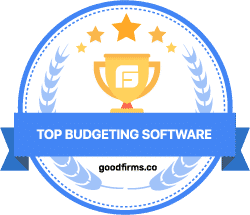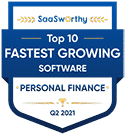Navigating the complexities of personal finance requires a blend of knowledge, discipline, and strategic planning. It’s not merely about how much you earn but, more significantly, how you manage what you earn. This guide explores five pivotal money habits to fortify your financial foundation, ensuring resilience and growth over time. Among these, we’ll delve into the nuanced world of credit cards, uncovering how they can be leveraged as powerful tools for financial health rather than debt pitfalls.
1) Embrace Budgeting: Your Financial Blueprint
Crafting and adhering to a budget is like drawing a map for your financial journey. It involves tracking your income, understanding your expenses, and setting financial goals that align with and help you achieve your life goals. A well-thought-out budget is a guide, helping you navigate spending decisions with clarity and purpose. By categorizing your expenses, you can identify areas of unnecessary spending and redirect funds toward savings and investments.
2) Invest Wisely: Planting Seeds for the Future
Investing is not reserved for the wealthy; it benefits anyone aiming to grow their wealth over time. Starting small in diversified investments can lead to significant gains in the long run, thanks to the power of compounding interest. Educate yourself on different investment vehicles, such as stocks, bonds, mutual funds, and real estate. We highly recommend consulting with a financial advisor to customize an investment strategy that suits your risk tolerance and financial goals.
3) Build an Emergency Fund: Your Financial Safety Net
An emergency fund is an essential buffer against life’s unexpected events—a job loss, medical emergency, or urgent home repairs. Save at least three to six months’ worth of living expenses. This fund should be readily accessible, such as in a high-yield savings account, ensuring you can get through tough times without derailing your financial stability.
4) Mastering Credit Cards: Tools of Empowerment, Not Entrapment
Credit cards often receive a bad rap. They are portrayed as traps that can quickly lead consumers into challenging situations when they don’t understand credit card debt, including the stress of expecting high-interest rates and accumulating fees. However, when used judiciously, credit cards can be a strong ally in building credit, earning rewards, and managing cash flow.
The key to avoiding the pitfalls of credit card debt is to pay off your balance in full each month or, even better, twice a month, thus avoiding interest charges and late fees. Look for cards that offer rewards aligned with your spending habits—cashback, travel points, or discounts on everyday purchases. Moreover, a solid credit history, supported by responsible credit card use, can unlock favorable terms on loans and mortgages, showing the long-term benefits of a deep understanding and wise use of credit cards.
5) Continuous Financial Education: Your Path to Empowerment
The landscape of personal finance is ever-evolving, with new products, services, and regulations emerging regularly. Staying informed through books, podcasts, workshops, and reputable online resources can empower you to make informed decisions. This continuous learning journey helps you adapt to changes and uncover opportunities to optimize your financial strategy.
Conclusion
Adopting these five good money habits isn’t a one-time task but a lifelong commitment to financial well-being. Each habit, from meticulous budgeting and wise investing to the strategic use of credit cards, plays a crucial role in building a robust financial foundation. Remember, the essence of financial planning lies in aligning your financial actions with your life goals.
As you embark on this journey, patience, discipline, and a proactive approach to learning will be your allies, steering you toward a future of financial security and prosperity. Embrace these practices, and watch as they transform your financial landscape, paving the way for a life enriched not just with wealth but with the freedom and confidence that come from financial mastery.








Leave A Comment